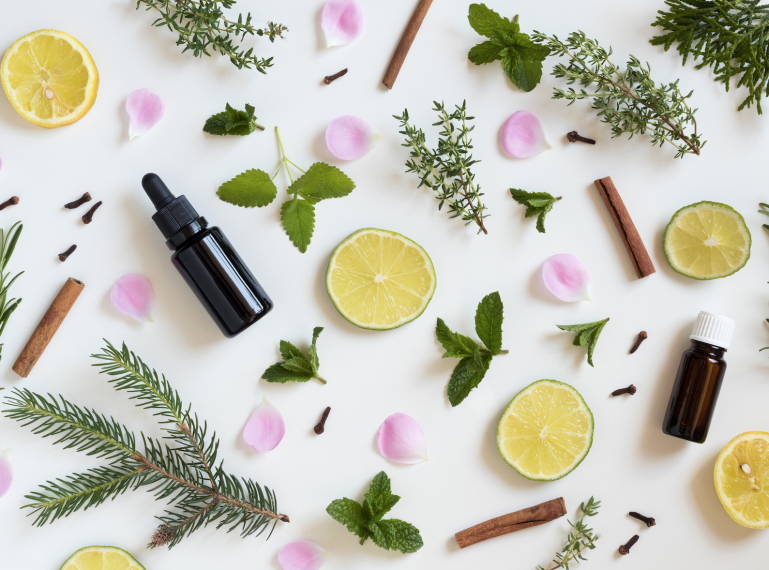
Natural skin and hair care products have become so sought after that nearly every company tries to introduce them into its offer. Beauty bloggers and vloggers keep talking about them. Plant-based moisturizers, activated charcoal, green tea, herbs, oils, macerations and organic face skin essence… all of a sudden, nature surrounds us. How not to get lost among all of the products? Which ones should we have in our bathrooms? Do you already know how to choose the truly valuable products among hundreds of natural cosmetics? Let me clear it up for you!
Natural cosmetics – which ones are really the best?
We are becoming more and more conscious consumers, which is a really good thing because we no longer fall for products abounding in silicones, parabens, SLS and bad, dehydrating alcohols. Alcohol denat is already ‘dead’ in the cosmetic world: nobody either needs it or wants it in a beauty product. It is comforting and heartwarming. However, many of us are still falling for cosmetics that are only advertised as natural. Then such products turn out to have little to do with nature… to choose a good product, keep away from the following buzzwords: inspired by nature, based on natural ingredients, enriched with natural extracts – natural substances occur in sparse amounts plus their work is disturbed by synthetics, colorants and stabilizers. If you’re looking for high-quality natural cosmetics – choose the ones having the shortest list of ingredients or buy purely natural substances (add them to homemade cosmetics or use them in pure form – the effect is a way better in comparison to a synthetic-filled moisturiser or toner).
Natural beauty products – which ones are worth buying?
1. Natural, cold-pressed butters & oils
Oils are multitasking beauty products, the irreplaceable element of beauty care. They are composed of flavonoids, phytosterols (so-called plant sterols), good omega fatty acids, an array of vitamins and nutrients. Oils are cut out for DIY products. However, use them also in their pure form – add to bath water, rub into body, face and hair, use for a massage and for treating chapped lips and under-eye skin.
I’ve got two oil favorites: Raspberry Seed Oil (brilliant for skin after turning 30, a strong antioxidant making skin smooth) and Shea Butter – strongly rejuvenates as well plus – thanks to a thick form – works as a body lotion, hand cream, hair oil (an ideal set of fatty acids).
2. Hydrosols
Forget the drugstore, alcohol-based face toners. Hydrosols are ingenious plant waters that are produced during the steam distillation of a plant. A hydrosol has the properties of a plant it is derived from and it’s a truly effective beauty product. Spray it on skin or tap in, use it for DIY wet wipes, spritz it on hair or use as water base for DIY moisturizers and body lotions.
Hydrosols have various qualities and benefits – everything depends on a plant that was used. Rose hydrosol is my number one – brilliantly nourishes, refreshes, adds a nice, healthy-looking color to skin as well as keeps it hydrated.
3. Cosmetic clays
Cosmetic clays, or mineral clays, make up another group of multitasking cosmetics for face, body, hair. Clays have different colors and benefits – you must match them to your skin type. White clay is the mildest form which works for sensitive and vascular skin. There are also blends of two clays that are mixed as to fight all skin problems the most effectively.
The beauty value of every clay can be upgraded. Instead of mixing it with water, combine it with e.g. flower water, or the already mentioned hydrosol. You can also mix a clay with natural oils, herbal infusions (e.g. camomile) or flaxseed gel.
Cosmetic clays make excellent ingredients in scalp-clarifying and sebum-balancing masks. Mix them with water, herbal infusion or hair hydrosol (e.g. sage or juniper). Then, gently rub the resulting pulp in scalp and let it sit in for around 15-20 minutes.

Leave a Comment